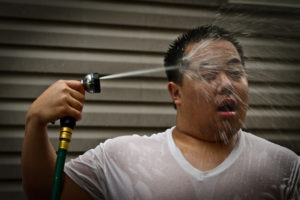 “It’s not the heat, it’s the humidity!”
“It’s not the heat, it’s the humidity!”
The all familiar phrase starts becoming more wide-spread in July and August. There is some validity to the statement but it still remains a little vague. Plus the heat and humidity will affect us all a little differently depending on age, location, and activity. Something you can pay a bit more attention to are terms like heat index, heat advisory, or excessive heat warning. These look at a number of factors and have specific criteria that have to be met in order to be issued for your area.
The heat index is the apparent temperature that you feel when you factor in the heat and humidity. With more moisture in the air (humidity) then the body’s ability to cool itself (sweat evaporating) is impaired. You may not realize it but the heat index is calculated in the shade and can increase 10 to 15 degrees in the sunshine. Once that temperature climbs above 90 degrees and the humidity increases, then you will see that index closing in on 100 degrees. In most parts of the country this will result in heat advisories or warnings being issued.
A heat index of at least 100 degrees for a period of 2 days will typically come with a heat advisory issued by the National Weather Service. Forecast a heat index of 105 for at least 2 days and you get an excessive heat warning. One thing that is often overlooked with these high heat events is the overnight low temperature. Even if it is questionable if the heat index will reach 100 degrees, if the overnight low temperature remains above 75 to 80 degrees a warning or advisory may still be issued. Structures may not be able to cool enough at night with such a warm temperature so the heat can in effect accumulate inside connected houses.
So if you see a heat advisory or warning issued for your area what do you do? Drink of course! No not alcohol, water and plenty of it. This along with wearing light colors and loose fitting clothing will help your body stay cool. Stay inside especially during the afternoon and check on those who do not have access to air conditioning. Make sure you know the signs of any heat related illness and seek help immediately if you suspect heat exhaustion or heat stroke.